Estate Planning, Probate, Will and Trust Lawyer in Miami | Morgan Legal Group
Welcome to Morgan Legal Group
Free consultation 24/7
Got a Problem? Consult With Us
For Assistance, Please Give us a call or schedule a virtual appointment.
Recognition






About Us
Morgan Legal Group is a premier law firm specializing in estate planning, probate, wills, and trusts in Miami, Florida. With decades of combined experience, our team of dedicated attorneys is committed to providing comprehensive legal solutions tailored to meet the unique needs of our clients. We understand the importance of protecting your assets, ensuring your wishes are carried out, and securing your family’s future, and we are here to guide you through every step of the process.
Why Choose Us
When it comes to estate planning, probate, wills, and trusts, choosing the right legal representation is crucial. Here are three reasons why Morgan Legal Group is the best choice for your legal needs:
Personalized Approach
At Morgan Legal Group, we believe in taking a personalized approach to every case. We understand that each client has unique goals, concerns, and priorities, and we tailor our legal strategies accordingly. Whether you’re planning for the future, navigating the probate process, or creating a will or trust, we take the time to listen to your needs and develop a customized plan that best serves your interests.
Experience and Expertise
Our team of attorneys brings decades of combined experience and expertise to the table in the field of estate planning, probate, wills, and trusts. We have successfully handled a wide range of cases, from simple estate plans to complex probate disputes, and have a proven track record of achieving favorable outcomes for our clients. With us, you can trust that your legal matters are in capable hands.
Client-Centered Approach
At Morgan Legal Group, our clients always come first. We prioritize open communication, transparency, and responsiveness in all our interactions. We understand that legal matters can be complex and overwhelming, which is why we strive to make the process as smooth and stress-free as possible for our clients. With us, you can expect dedicated support and guidance every step of the way.
Confidence in the legal field. We protect you from problems!

How we work:
Our approach to estate planning, probate, wills, and trusts is thorough, client-focused, and designed to achieve the best possible outcomes. Here's how we work with our clients:
Step 1: Initial Consultation
We begin by scheduling an initial consultation with each client to discuss their goals, concerns, and priorities. During this meeting, we take the time to listen carefully to your needs and gather all the relevant information necessary to develop a tailored legal strategy.
Step 2: Customized Planning
Based on the information gathered during the initial consultation, we develop a customized estate plan, probate strategy, or will/trust document that addresses your unique needs and objectives. We carefully explain all available options and guide you through the decision-making process every step of the way.
Step 3: Implementation and Review
Once your estate plan is finalized, the probate process is underway, or your will or trust document is created, our team provides dedicated support and representation throughout the implementation phase. We ensure that all legal documents are properly executed and that your wishes are accurately reflected. We also offer ongoing review and updates as needed to ensure your plan remains current and effective.
Get in Touch
Contact us
If you’re in need of estate planning, probate, or related legal services in Miami, Florida, contact Morgan Legal Group today. Our experienced attorneys are here to provide you with the guidance and support you need to protect your legacy and secure your family’s future.
Frequently Asked Questions
What is estate planning, and why is it important?
Estate planning is the process of arranging for the management and disposal of a person’s estate during their life and after death. It involves making decisions about how assets will be distributed, who will manage them, and who will make decisions in case of incapacity.
Do I need an estate plan if I don't have many assets?
Yes, estate planning is important regardless of the size of your estate. Even if you don’t have many assets, an estate plan can help ensure that your wishes are carried out, your loved ones are provided for, and potential conflicts are avoided.
What documents are included in an estate plan?
An estate plan typically includes a will, a durable power of attorney, a healthcare proxy or living will, and possibly trusts or other legal arrangements depending on your specific circumstances and goals.
Can I make changes to my estate plan after it's been finalized?
Yes, you can make changes to your estate plan at any time by consulting with your attorney to update your legal documents. Common reasons for updating an estate plan include changes in family circumstances, changes in tax laws, or changes in your financial situation.
What is Medicaid planning, and why is it important?
Medicaid planning involves legally and ethically protecting assets while qualifying for Medicaid benefits to pay for long-term care. It is important because Medicaid eligibility rules are complex, and without proper planning, individuals may risk losing their life savings to long-term care costs.
How can I protect my assets from nursing home costs?
There are various legal strategies available to help individuals protect their assets from nursing home costs, such as creating irrevocable trusts, gifting assets, purchasing long-term care insurance, and exploring Medicaid planning options. It’s essential to consult with an experienced attorney to determine the best approach for your situation.
What is guardianship, and when is it necessary?
Guardianship is a legal process that allows a court to appoint a guardian to make decisions for an incapacitated person, known as a ward. It may be necessary when an individual becomes unable to make decisions due to age, illness, or disability and does not have advance directives or powers of attorney in place.
What are the benefits of creating a trust?
Creating a trust offers several benefits, including avoiding probate, providing for minor children or beneficiaries with special needs, protecting assets from creditors, and maintaining privacy in the distribution of assets. Trusts also allow for greater flexibility and control over the distribution of assets.
What are the tax implications of estate planning?
Estate planning can have significant tax implications, including estate taxes, gift taxes, and generation-skipping transfer taxes. However, with proper planning and structuring, it is possible to minimize or eliminate tax liabilities and maximize the value of assets passed on to heirs and beneficiaries.
How can I get started with estate planning?
If you’re ready to start planning for the future and protecting your assets, we encourage you to schedule an initial consultation with one of our experienced attorneys. During this meeting, we will discuss your goals, concerns, and priorities and develop a customized plan tailored to your specific needs and circumstances.
Recognition







